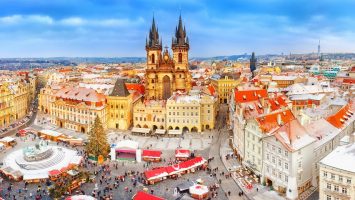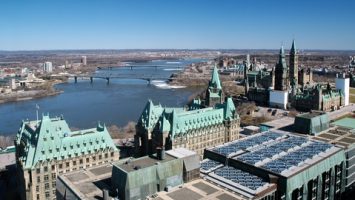
Last year, The Pennsylvania Horticultural Society (PHS) and Broad Street Ministry (BSM) in Philadelphia, PA received a $300,000 grant from the Pew Center for Arts and Heritage to install and operate Farm for the City – an urban garden growing fruits, vegetables, and herbs – in the center of the city
“We thought that if we plopped down a farm right in the middle of Center City it would help shine a light on all the amazing work of community gardeners in strengthening neighborhoods,” said Julianne Schrader Ortega, vice president and chief of programs at PHS.
The produce from the farm is all donated to BSM’s social services program, which provides people experiencing homelessness and poverty with meals, personal care items, clothing, mail services, mental health and primary medical care services and more.
Before the farm opened in June, ingredients for BSM’s meals were bought locally and donated by Carversville Farm, a nonprofit in Bucks County that grows fresh produce to give to food-insecure populations. The addition of the produce from the urban farm has given the kitchen team at BSM more food to experiment with. The produce grown was partly determined by the results of a survey of the people BSM serves. The produce was also decided by speaking to PHS City Harvest – a group of urban growers who work with families experiencing poverty. The farm now includes African eggplant, chard, carrots, cilantro, fennel, lavender, mint, onion and thyme.
PHS “didn’t want to just dictate what we would get,” Theresa Malandra, senior director of development and marketing at BSM said. “They really wanted to hear the voices of the people that we serve.”
Charlyn Griffith, program curator for the farm, has designed workshops and events for people interested in learning more about the farm.
“Talking about how you can start your own garden in your back door or with your community, so that you’re able to get fresh produce on your own and not be reliant on a supermarket,” said Malandra, about the farm’s programming. “We have a lot of food deserts in Philadelphia, and they’re really trying to shine the light on food access and how people can have their own food sovereignty.”


